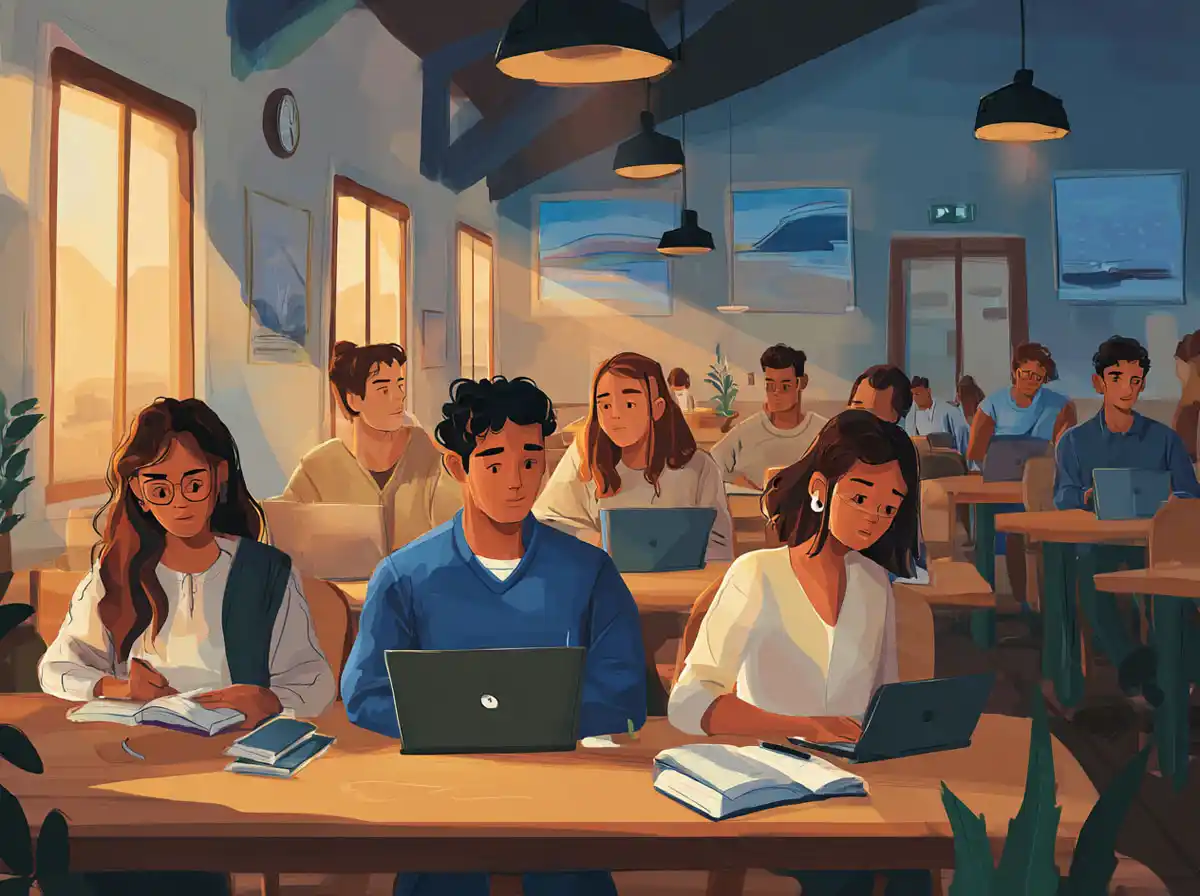Igralište (Playground)
In Croatian, igralište refers to a playground, a designated area where children can play. Playgrounds typically have equipment like swings, slides, and climbing structures. Understanding the vocabulary associated with igralište will help you describe these areas more accurately.
Igralište – Playground
Djeca se igraju na igralištu.
Klackalica – Seesaw
Djeca su se vozila na klackalici.
Ljuljačka – Swing
Djeca su se ljuljala na ljuljački.
Tobogan – Slide
Djeca su se spuštala niz tobogan.
Penjalica – Climbing structure
Djeca su se penjala na penjalicu.
Pijesak – Sand
Djeca su gradila kule u pijesku.
Konopac – Rope
Djeca su se penjala uz konopac.
Kućica – Playhouse
Djeca su se igrala u kućici.
Activities at the Igralište
Playgrounds are bustling with various activities. Here are some common verbs associated with playground activities:
Igrati se – To play
Djeca se vole igrati vani.
Penjati se – To climb
Djeca se vole penjati na penjalicu.
Ljuljati se – To swing
Djeca se vole ljuljati na ljuljački.
Spuštati se – To slide
Djeca se vole spuštati niz tobogan.
Graditi – To build
Djeca vole graditi kule u pijesku.
Park (Park)
A park in Croatian generally refers to a larger public space that may include playgrounds but also has areas for walking, relaxing, and enjoying nature. Parks can be found in cities, towns, and rural areas.
Park – Park
Proveli smo dan u parku.
Travnjaci – Lawns
Ležali smo na travnjacima u parku.
Staza – Path
Šetali smo po stazi u parku.
Drveće – Trees
Sjedili smo ispod drveća.
Klupa – Bench
Sjedili smo na klupi i razgovarali.
Fontana – Fountain
Djeca su se igrala pored fontane.
Jezero – Lake
Šetali smo oko jezera.
Cvijeće – Flowers
Divili smo se cvijeću u parku.
Šuma – Forest
Šetali smo kroz šumu u parku.
Activities at the Park
Parks offer a wide range of activities for people of all ages. Here are some common verbs associated with park activities:
Šetati – To walk
Volimo šetati po parku.
Trčati – To run
Djeca vole trčati po travnjaku.
Opuštati se – To relax
Otišli smo u park da se opustimo.
Uživati – To enjoy
Uživamo uživati u prirodi.
Promatrati – To observe
Volimo promatrati ptice.
Piknik – To have a picnic
Često idemo na piknik u park.
Fotografirati – To take photos
Volimo fotografirati cvijeće.
Combining Igralište and Park
Many parks have playgrounds within them, allowing for a combination of activities. Here are some sentences that combine vocabulary from both igralište and park:
Djeca se igraju na igralištu dok mi šetamo po parku.
(The children are playing at the playground while we walk in the park.)
Nakon igre na ljuljački, prošetali smo do jezera.
(After playing on the swing, we walked to the lake.)
Djeca su gradila kule u pijesku dok smo mi sjedili na klupi i razgovarali.
(The children were building sandcastles while we sat on the bench and talked.)
Nakon što su se djeca spuštala niz tobogan, otišli smo promatrati cvijeće.
(After the children slid down the slide, we went to observe the flowers.)
Additional Vocabulary
To further expand your vocabulary, here are a few more words that you might find useful when talking about igralište and park:
Ograda – Fence
Igralište je okruženo ogradom.
Ulaz – Entrance
Ušli smo kroz glavni ulaz u park.
Izlaz – Exit
Izašli smo kroz stražnji izlaz iz parka.
Česma – Water fountain
Popili smo vodu iz česme.
Kanta za smeće – Trash can
Bacili smo smeće u kantu za smeće.
Rasvjeta – Lighting
Park je lijepo osvijetljen noću zahvaljujući rasvjeti.
Informacijska tabla – Information board
Pogledali smo informacijsku tablu da vidimo mapu parka.
Toaleti – Restrooms
Toaleti se nalaze pored glavnog ulaza.
Practice Makes Perfect
To master these terms, try to incorporate them into your daily conversations. Practice describing a visit to a playground or a park, either in a journal or by speaking with a language partner. The more you use these terms, the more natural they will become.
Here are some practice sentences to get you started:
1. Danas smo proveli cijeli dan u parku i uživali u prirodi.
(Today we spent the whole day in the park and enjoyed nature.)
2. Djeca su se cijelo popodne igrala na igralištu.
(The children played on the playground all afternoon.)
3. Volim šetati po parku i promatrati cvijeće.
(I love walking in the park and observing the flowers.)
4. Djeca su se ljuljala na ljuljački dok smo mi sjedili na klupi.
(The children were swinging on the swing while we sat on the bench.)
5. Nakon igre na igralištu, otišli smo na piknik.
(After playing on the playground, we went for a picnic.)
By practicing these sentences and familiarizing yourself with the vocabulary, you’ll become more comfortable discussing outdoor spaces in Croatian. Happy learning!










